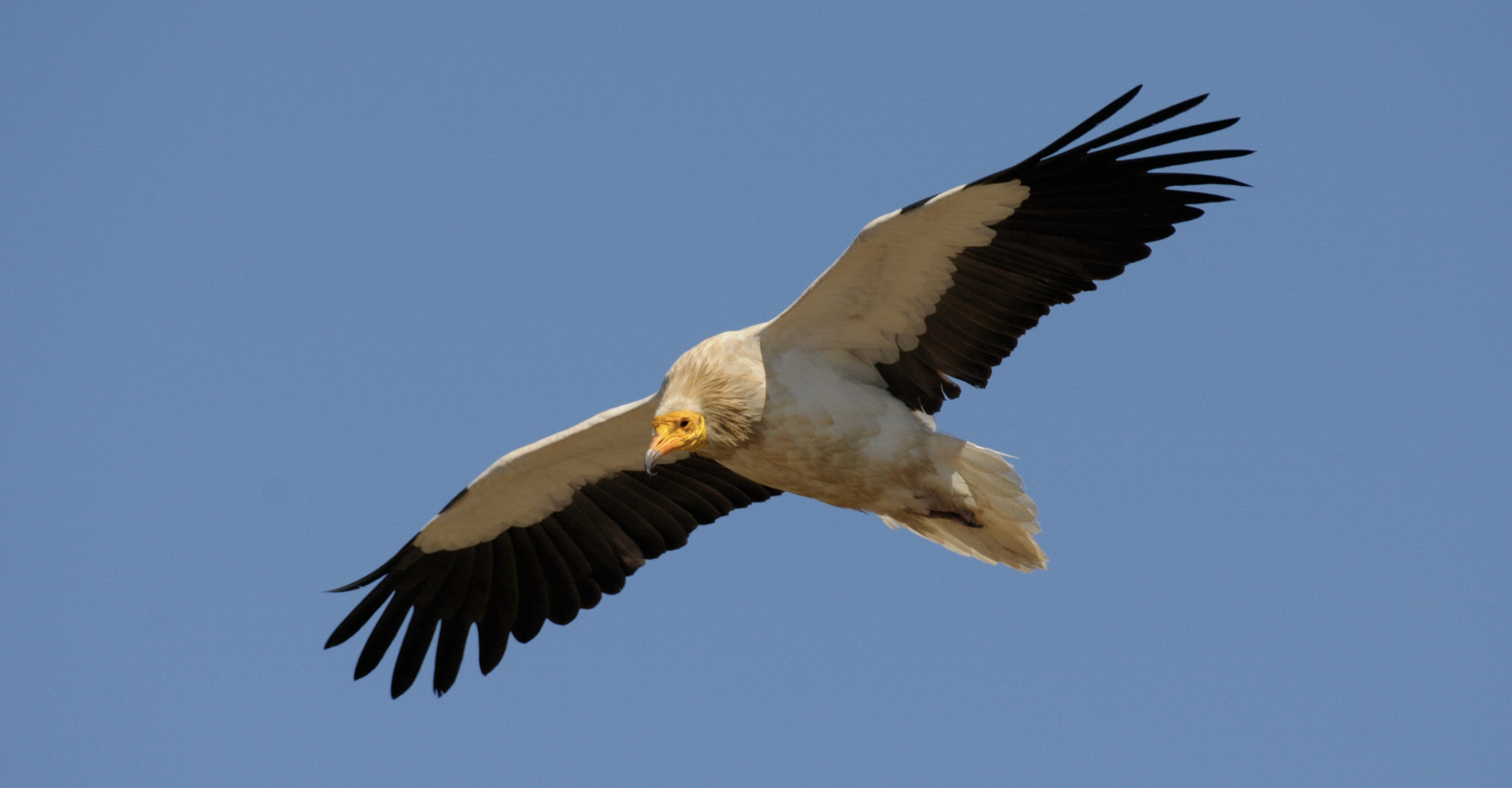
An adult Egyptian vulture was found in early August with a broken wing in the central part of Macedonia (FYR), close to a known Egyptian vulture territory. The bird was found in very bad physical condition near a road below an electricity line by local people.
Before they contacted the Aquila Nature Conservation Association (that works on vulture conservation for over 30 years in this area) the local people used gasoil on the bird, presumably to try to help it, but the the bird became soaked in gasoline. After being treated by a local vet, the bird died the next day.
An overlooked threat
Collision with power cables can cause injuries from the collision itself or from falls to the ground, and is an often overlooked threat to vultures. Collisions can occur for several reasons (bad weather), but the likelihood of collision is significantly increased due to the ingestion of sub-lethal doses of poison or lead from lead ammunition fragments.
No action taken
Unfortunately no action was taken by the Macedonian authorities, as this case was not properly investigated and recorded, and no post-mortem or analyses were performed. Therefore we cannot be certain about the exact cause of death, which is always very important information to be able to plan the implementation of adequate conservation measures.
The Egyptian vulture is highly threatened in Macedonia and in the rest of the Balkan peninsula, and the death of each individual should be thoroughly investigated. This bird could have died as a result of illegal wildlife poisoning, for example – without a proper investigation we just don’t know.
The engagement of the relevant national authorities is crucial in cases such as these. Identifying precise cause of death is not always possible but we should at least have a record. Less than 20 percent of the birds that die are actually found.
The work of our Balkan Anti-Poisoning Project aims to address some of these issues and hopefully a case like this will not be repeated in the future.
Balkan Anti-Poisoning Project

The illegal use of poison continues to be the single most important threat to vultures in many of the Balkan countries, and is a current limiting factor for their recovery in the region.
Funded by the Mava Foundation we are leading on the Balkan Anti-Poisoning Project which aims to secure real and continued engagement of the relevant national governmental authorities in the Balkan region against illegal wildlife poisoning and increase their capacity to counteract it and working together to take positive steps to protect vultures.
The Balkan Anti-Poisoning Project is a partnership between us here at the Vulture Conservation Foundation and the Albanian Ornithological Society-AOS, Protection and Preservation of Natural Environment in Albania-PPNEA, Ornithological Society “Naše ptice”,Association BIOM, Hellenic Ornithological Society-HOS, Macedonian Ecological Society-MES.
The Balkan Anti-Poisoning Project also contributes directly into the implementation of the Vulture Multi-Species Action Plan by carrying out anti-poisoning actions in Albania, Bosnia and Herzegovina, Croatia, Greece and Macedonia, and is building on our work for the last decade in the Balkans thorugh the Balkan Vulture Action Plan.



